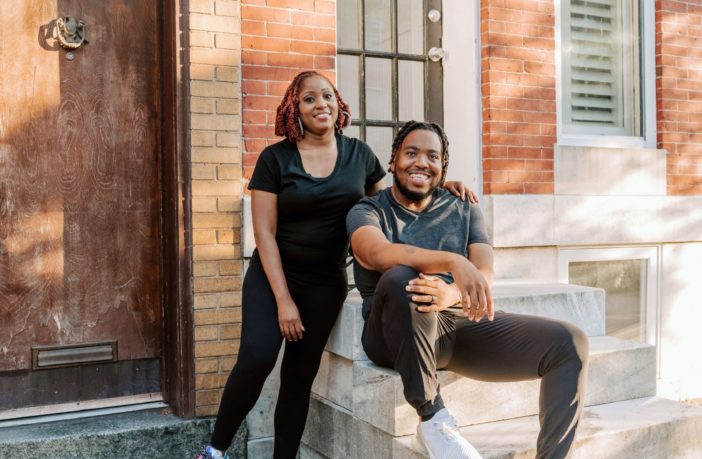Tyron and April Harper are the husband and wife team behind Harp Vision, a business started to provide natural relief to people’s chronic pain. (Photo by Anthony Georgis)
By Megan Sayles,
AFRO Business Writer,
msayles@afro.com
Husband and wife Tyron and April Harper suffered from chronic pain for years.
Tyron Harper deals with fibromyalgia, a disorder that the Centers for Disease Control and Prevention (CDC) says causes pain all over the body. April Harper has endometriosis—a condition in which tissue typically found in the uterine lining grows outside of the uterus and causes severe pain, according to the CDC.
Together, they have found a way to help others also struggling to deal with pain while also navigating their day-to-day lives.
In trying to manage their pain, the Harpers realized that many common remedies, like creams and other topical medications, caused the health of their skin to deteriorate.
“A lot of the traditional products they have for pain management didn’t help us with our skin,” said Tyron Harper. “When we used products for skin ailments, they would mess up a different organ because they had chemicals and a lot of nasty stuff in them.”
The couple decided to open Harp Vision to promote self care and offer their own line of plant-based products, specifically designed to help people mitigate chronic pain.
The company sells vegan, gender-neutral soaps, body scrubs, bath teas and skin creams. The Harpers utilize ingredients like essential oils, herbs, shea butter and Himalayan salt to help customers manage muscle and joint pain, inflammation, dry skin and hyperpigmentation.
The Baltimore natives said self care is often stigmatized in the Black community, as well as in men. Now, they work to help Black men put themselves first.
“The self care stigmas for the Black communities in my opinion are that we can pray mental and physical discomforts away,” said April Harper. “We [also]encounter male customers who believe that our products are just for women.”
April Harper said that, on average, if men do have a self care regimen in place, it’s developed by their spouses or partners.
“I’m an African-American man trying to navigate life while dealing with the trauma that has been passed down through multiple generations to me. For me, self care is a full-time job,” added Tyron Harper. “When it comes to other members of the Black community—particularly men—there is a stigma that it’s self-indulgent to put yourself first. We are instructed to put others’ needs ahead of our own.”
With their business, the Harpers hope to reduce these stigmas. They sell their products in the Avenue and Lexington Markets, and they also have partnerships with DoorDash, Amazon and local hotels to reach more customers.
In the future, the Harpers would like to open a brick-and-mortar space that houses their products and also provides people with access to holistic natural providers and therapies.
“Because we are a social enterprise in Baltimore, we want to make an impact. It’s important to us to hire from the community and make a difference,” said Tyron Harper. “Our goal is to foster relationships where we can be profitable, but it’s also to come back into the community and educate people not only on plant-based body care but also on social entrepreneurship.”
Megan Sayles is a Report for America Corps member.
Related Articles:



